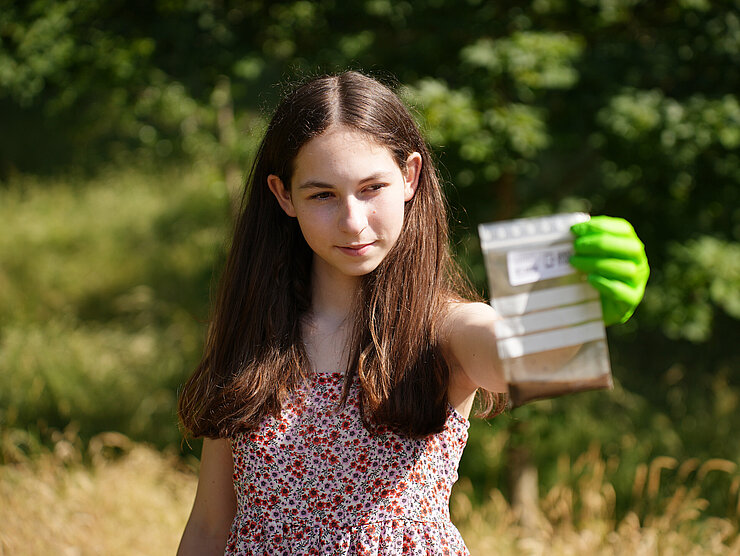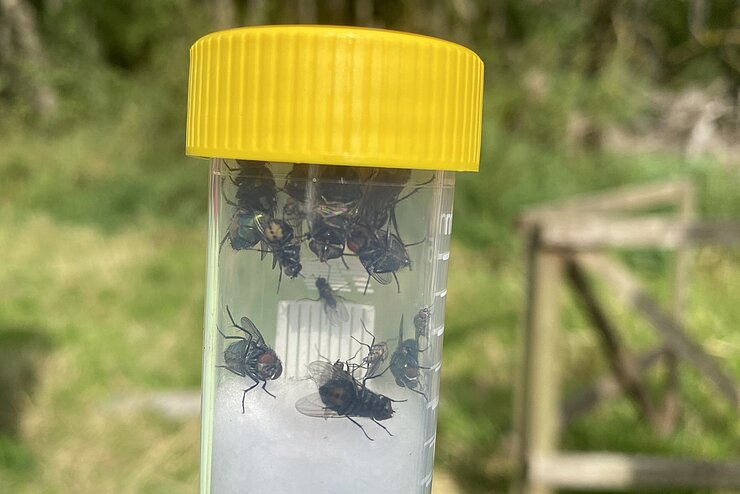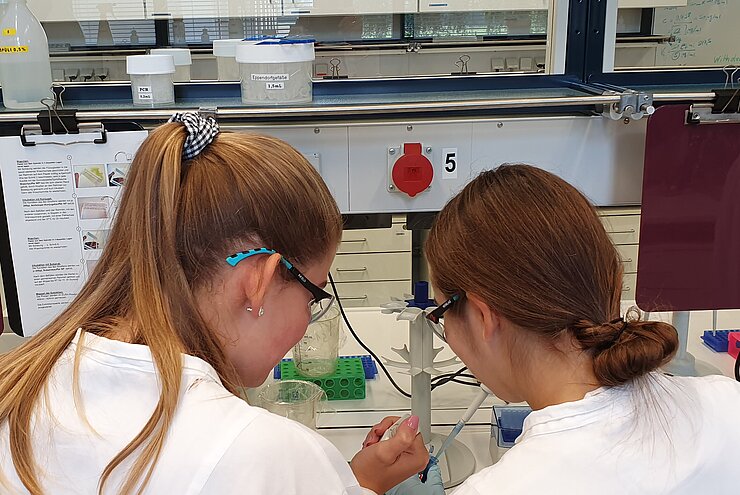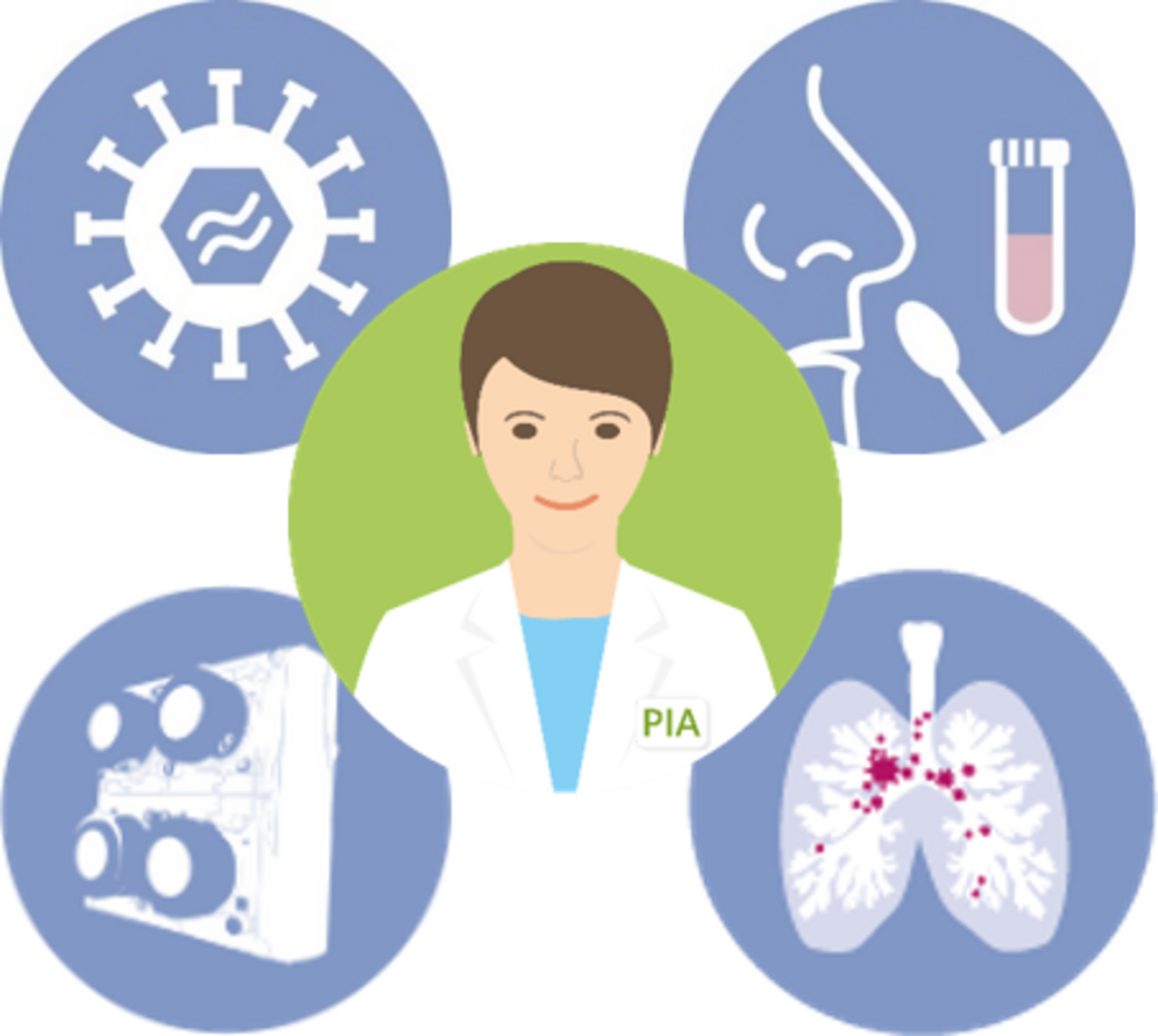Transfer of Knowledge
The HZI's research program places particular emphasis on the effective transfer of research results into clinical and industrial applications. In addition, the transfer of knowledge to society also plays a major role for us. The target groups of knowledge transfer include the general public, physicians, health authorities, schools, journalists and decision-makers in various institutions. Here you will find some examples of the HZI's transfer of knowledge activities.
Citizen Science
Citizen science refers to scientific projects in which interested laypeople actively participate in research processes. This participation can include data collection, observation, analysis or knowledge sharing. Citizen science enriches science through broader participation and can also promote public understanding and interest in scientific topics. Three citizen science projects are currently being carried out at the Helmholtz Centre for Infection Research.
MICROBELIX

Microorganisms populate the soil in large numbers, but their role in nature is often still unexplored. However, they are an important source of natural products, which in turn can be used to find and develop new drugs. Therefore, the Helmholtz Institute for Pharmaceutical Research Saarland (HIPS) is calling for soil samples to be collected in all of Germany as part of the citizen science project MICROBELIX.
Anyone can take part - from individuals to clubs or schools, because it doesn't matter whether a layperson or an expert takes a sample. Participation is free and each sample could contain a new potential active ingredient.
Participants will receive a sample collection kit with instructions on how to take samples when they register. The collected samples are registered on an interactive map and sent in for analysis. The map helps to examine the soil from as many different locations and landscapes as possible and revisit particularly successful collection points later on. At the HIPS, scientists assess the microbiological biodiversity of each sample and use them to research into new antibiotics.
In May 2023, MICROBELIX was the winner of the competition "Auf die Plätze! Citizen Science in deiner Stadt" together with the Naturlandstiftung Saar and received funding of €50,000 as a prize. This is currently used to develop a smartphone app for the participants, among other things.
CiFly

The Helmholtz Institute for One Health (HIOH) in Greifswald aims to inspire young people with hands-on experience in the CiFly citizen science project. CiFly offers students pupils from the region the opportunity to experience research at first hand. They collect water samples, leaf swabs and flies and analyze them for biodiversity, infectious agents and antimicrobial resistances.
The students learn basic methods of molecular and microbiology and then - with the support of HIOH scientists - carry out their own experiments. It is important to the scientists that they not only pass on their knowledge but also the joy of research.
The partner school is the Alexander-von-Humboldt-Gymnasium in Greifswald. The 9th and 10th grade elective ecology course explores closely related topics such as biodiversity, climate change, infections and antimicrobial resistance. The CiFly citizen science project is part of the One Health region Vorpommern, which is supported by the Federal Ministry of Education and Research as part of the "T!Raum - TransferRäume für die Zukunft von Regionen" initiative led by the University of Greifswald.
SMARAGD
SMARAGD
The aim of the SMARAGD project (sensors for measuring aerosols and reactive gases and analyzing their impact on health) is to link pollutant measurements with health data together with citizen scientists. To this end, the participants install special pollutant sensors in their environment and report on their state of health using the HZI application PIA ("Prospective Monitoring and Management App"). PIA was developed at the HZI in the Department of Epidemiology to digitally conduct cohort studies based on interviews and surveys including biosample management. Forschungszentrum Jülich is responsible for the scientific supervision of the pollutant measurement. The sensors record particulate matter, nitrogen oxides, ozone and carbon monoxide. The health data focuses on respiratory infections. The project is a feasibility study. Participation in SMARAGD is only possible in the greater Cologne area.
Biotechnological School Lab Braunschweig

Since 2002, pupils in grades 11 to 13 have been able to visit the Biotechnological School Lab Braunschweig (BioS). They learn about basic bioscientific methods through their own experiments.
BioS is funded and scientifically supported by the Technische Universität Braunschweig, the Leibniz Institute DSMZ - German Collection of Microorganisms and Cell Cultures GmbH, the HZI and the state of Lower Saxony. The cooperation between the research institutions in the Braunschweig region gives the students an insight into current biotechnological problems.
